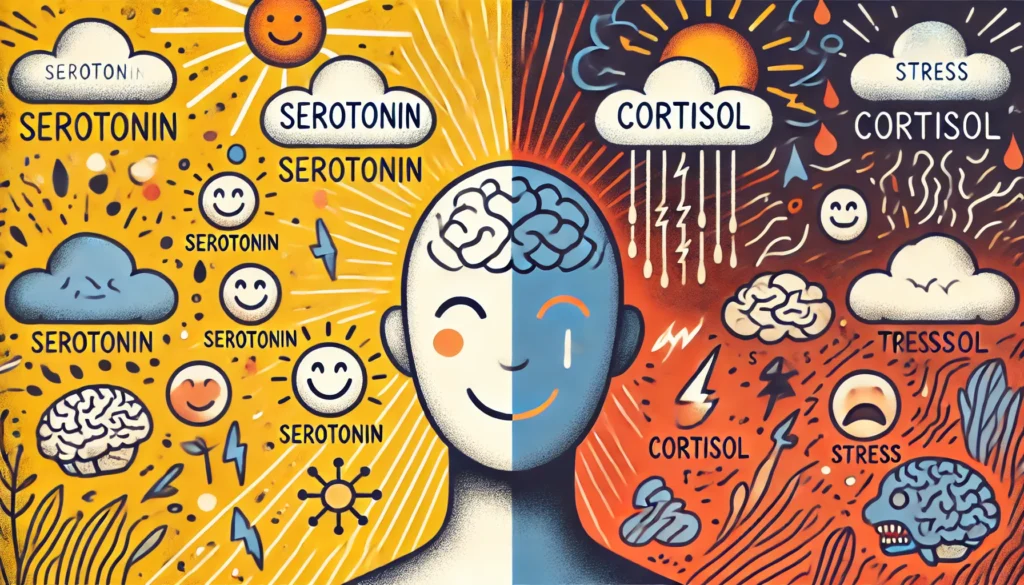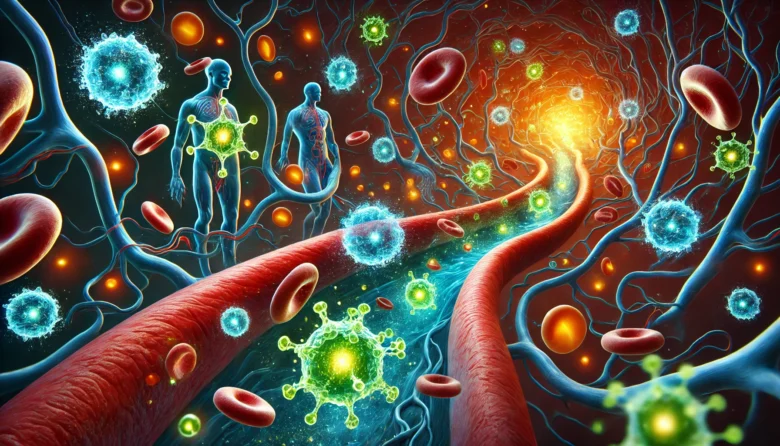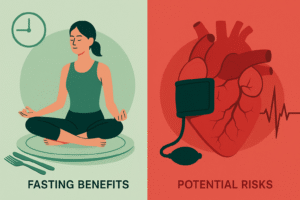Hormones are the body’s chemical messengers, playing a key role in regulating almost every bodily function. From your mood swings to how your body digests food, hormones are constantly working behind the scenes. But what exactly are hormones, and how do they affect our daily lives? In this blog, we’ll dive into the chemistry of hormones and their effects on the human body, exploring how these vital compounds influence everything from growth and metabolism to mood and reproductive health.
What Are Hormones?
Hormones are chemical substances produced by glands in the endocrine system. Think of them as the body’s internal communication system, delivering messages from one part of the body to another. These chemical messengers travel through the bloodstream to target organs and tissues, triggering specific responses.
There are many different types of hormones, each with a unique role. For example, insulin helps regulate blood sugar levels, while adrenaline (often called the “fight-or-flight” hormone) prepares the body for immediate physical action. Hormones are synthesized from various biochemical building blocks, primarily proteins or lipids.
Let’s break it down further:
Peptide Hormones: These are made from amino acids, the building blocks of proteins. Examples include insulin and oxytocin.
Steroid Hormones: These hormones are synthesized from cholesterol and include testosterone and estrogen.
Amino Acid-Derived Hormones: Hormones like adrenaline and thyroxine (thyroid hormone) come from single amino acids.

How Hormones Affect the Body: Key Examples
Growth and Development: The Role of Growth Hormone
Growth hormone (GH) is responsible for promoting physical growth. Produced by the pituitary gland, GH stimulates the liver to produce another hormone called insulin-like growth factor-1 (IGF-1), which helps in the growth of bones and tissues. GH also plays a role in metabolism by encouraging the breakdown of fat and increasing muscle mass.
Without enough growth hormone, children may experience stunted growth, while adults may struggle with issues like reduced bone density and increased fat accumulation. An overproduction, on the other hand, can lead to conditions like gigantism or acromegaly, where certain parts of the body grow excessively.
Metabolism: The Role of Insulin
Insulin, produced by the pancreas, is crucial for regulating blood sugar levels. After you eat, your body breaks down carbohydrates into glucose (a type of sugar). Insulin helps cells absorb this glucose for energy, and without it, blood sugar levels would rise uncontrollably.
In diabetes, either the body doesn’t produce enough insulin or can’t use it effectively. This causes an increase in blood sugar levels, which, if not properly managed, can lead to severe complications such as nerve damage or heart disease. Insulin injections or medications are often used to help manage diabetes.
Mood Regulation: The Impact of Serotonin and Cortisol
Have you ever wondered why you feel more stressed during exams or deadlines? That’s your body’s cortisol levels at work. Known as the “stress hormone,” cortisol is produced by the adrenal glands. In small bursts, cortisol can be helpful, providing energy and focus during stressful situations. However, prolonged high levels can lead to issues like anxiety, depression, and even weight gain.
On the flip side, serotonin is the “feel-good” hormone. It’s a neurotransmitter that regulates mood, appetite, and sleep. A deficit of serotonin is often linked to depression, which is why many antidepressants aim to increase serotonin levels in the brain.
Reproductive Health: Estrogen and Testosterone
Estrogen and testosterone are the main hormones involved in regulating reproductive health in women and men, respectively. Estrogen, produced mainly in the ovaries, controls the menstrual cycle, affects bone density, and even impacts mood. Testosterone, produced in the testes, plays a crucial role in sperm production, sex drive, and muscle growth in men.
Hormonal disorders, such as polycystic ovary syndrome (PCOS) in women or low testosterone levels in men, can create reproductive difficulties. Treatments often involve hormone replacement therapies or lifestyle adjustments to bring these hormone levels back into balance.
Case Study: Hormonal Imbalance and Its Effects
Take, for example, a 35-year-old woman diagnosed with hypothyroidism. Her thyroid gland is underactive, resulting in symptoms like tiredness, weight gain, and depression. The solution? Hormone replacement therapy. By taking synthetic thyroid hormones, she can manage her condition and lead a healthier life.
In contrast, consider a young athlete using anabolic steroids (a synthetic form of testosterone) to enhance performance. Although it might provide temporary muscle growth, long-term use can cause serious side effects, including liver damage, heart issues, and mood swings, often referred to as “roid rage.”
Hormonal Interactions and Feedback Loops
Hormones don’t act in isolation. They are part of complex feedback loops that maintain balance in the body, known as homeostasis. For instance, if blood sugar levels rise, the pancreas secretes insulin to lower it. Once the levels stabilize, insulin production decreases. Similarly, the body’s temperature regulation involves thyroid hormones, which influence metabolism and heat production.
This delicate equilibrium can be disturbed by factors such as stress, poor diet, or insufficient sleep, all of which can contribute to hormonal imbalances. Understanding these processes is key to making informed lifestyle decisions that support hormonal balance.
Conclusion: Taking Care of Your Hormonal Health
The chemistry of hormones is intricate and powerful, impacting nearly every aspect of our well-being. From regulating metabolism and mood to supporting growth and reproductive health, hormones play a vital role in keeping our bodies functioning optimally. When hormone levels are balanced, we feel energetic, focused, and healthy. But when things go awry, the effects can be wide-reaching, affecting both physical and mental health.
Taking care of your hormones involves a holistic approach: eating a balanced diet, staying active, managing stress, and getting enough sleep are all key strategies to maintain hormonal balance. And if you ever feel that something is off, don’t hesitate to consult a healthcare professional to explore whether hormonal imbalances might be at play.
Author’s Note:
As someone fascinated by the science behind how our bodies work, I’ve always been intrigued by the complex world of hormones. Writing about the chemistry of hormones and their effects has deepened my appreciation for how small chemical changes can have such profound impacts on our daily lives. I hope this blog helps you understand the crucial role hormones play in your well-being.
G.C., Ecosociosphere contributor.
References and Further Reading:
- Harvard Health – Hormones and the Endocrine System
- Wellness – Petersen Concierge Medical. https://petersenconciergemedical.com/category/wellness/
- Hormones Facts And Questions! Trivia Quiz – Trivia & Questions. https://www.proprofs.com/quiz-school/story.php?title=hormones_21ea
- Understanding Hormonal Imbalances with Private Lab Testing — RSC Health. https://www.rschealth.com/blogs/news/understanding-hormonal-imbalances-with-private-lab-testing
- Sleep – Course Hero. https://www.coursehero.com/sg/introduction-to-psychology/sleep/
- Insulin-like Growth Factor 1 IGF-1 – RMBIO. https://rmbio.com/products/insulin-like-growth-factor-1-igf-1
- Plantsulin Reviews USA 2024: For Healthy Blood Sugar Levels. https://mazdaci.com/plantsulin-reviews/
- Glycodrive — Body Systems Nutrition. https://www.bodysystems.ca/products/glycodrive
- What is Cortisol and How Does it Affect You? – Soma Haus. https://somahaus.co/what-is-cortisol-and-how-does-it-affect-you/
- How does your endocrine system function? – Health Blog. http://kress.tomsk.ru/how-does-your-endocrine-system-function/





Comments
Hey! Someone in my Myspace group shared this website with us so I came to look it over. I’m definitely enjoying the information. I’m bookmarking and will be tweeting this to my followers! Terrific blog and brilliant design and style.
naturally like your web-site but you need to take a look at the spelling on several of your posts. Many of them are rife with spelling problems and I find it very troublesome to inform the truth then again I will surely come again again.